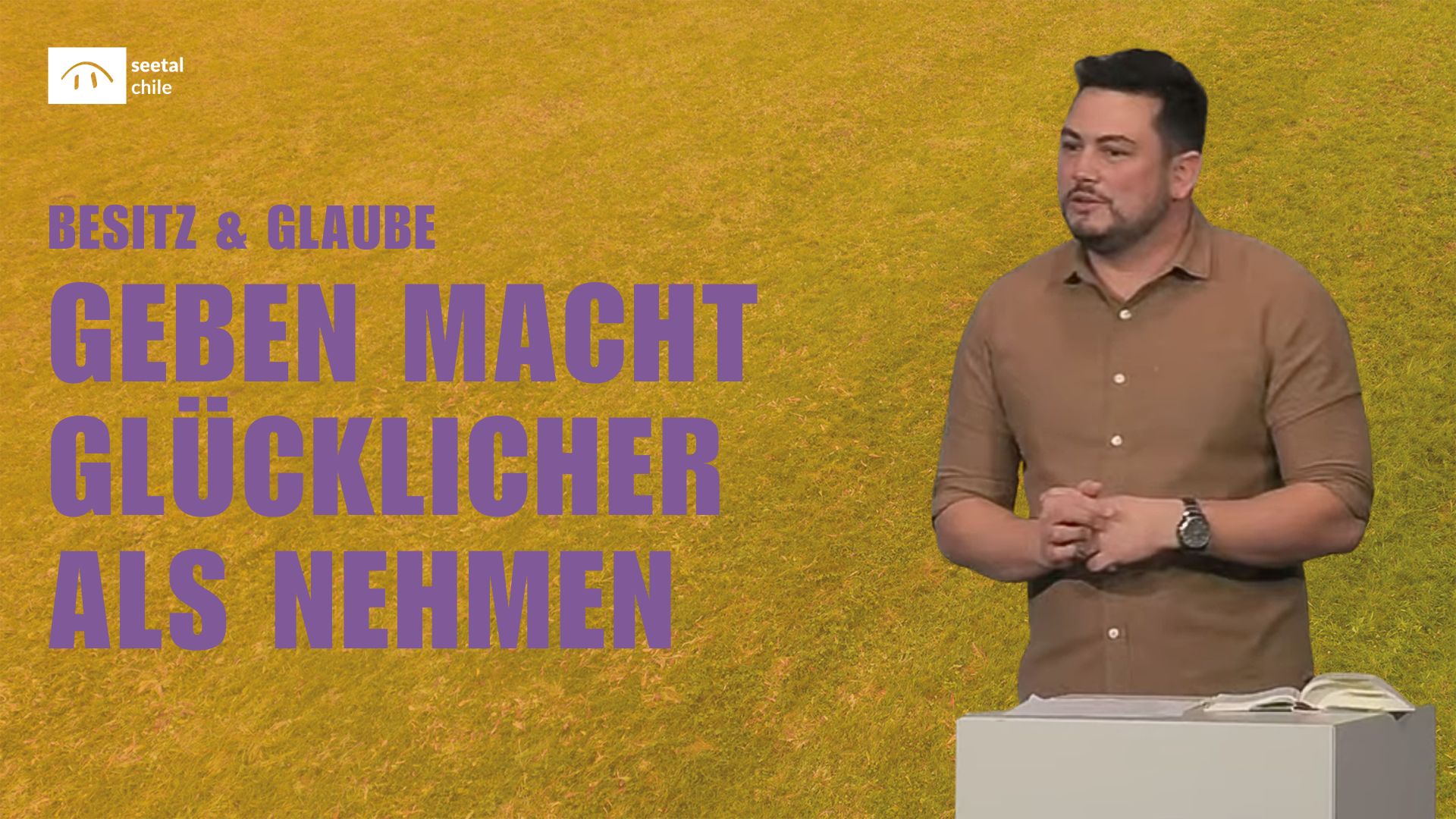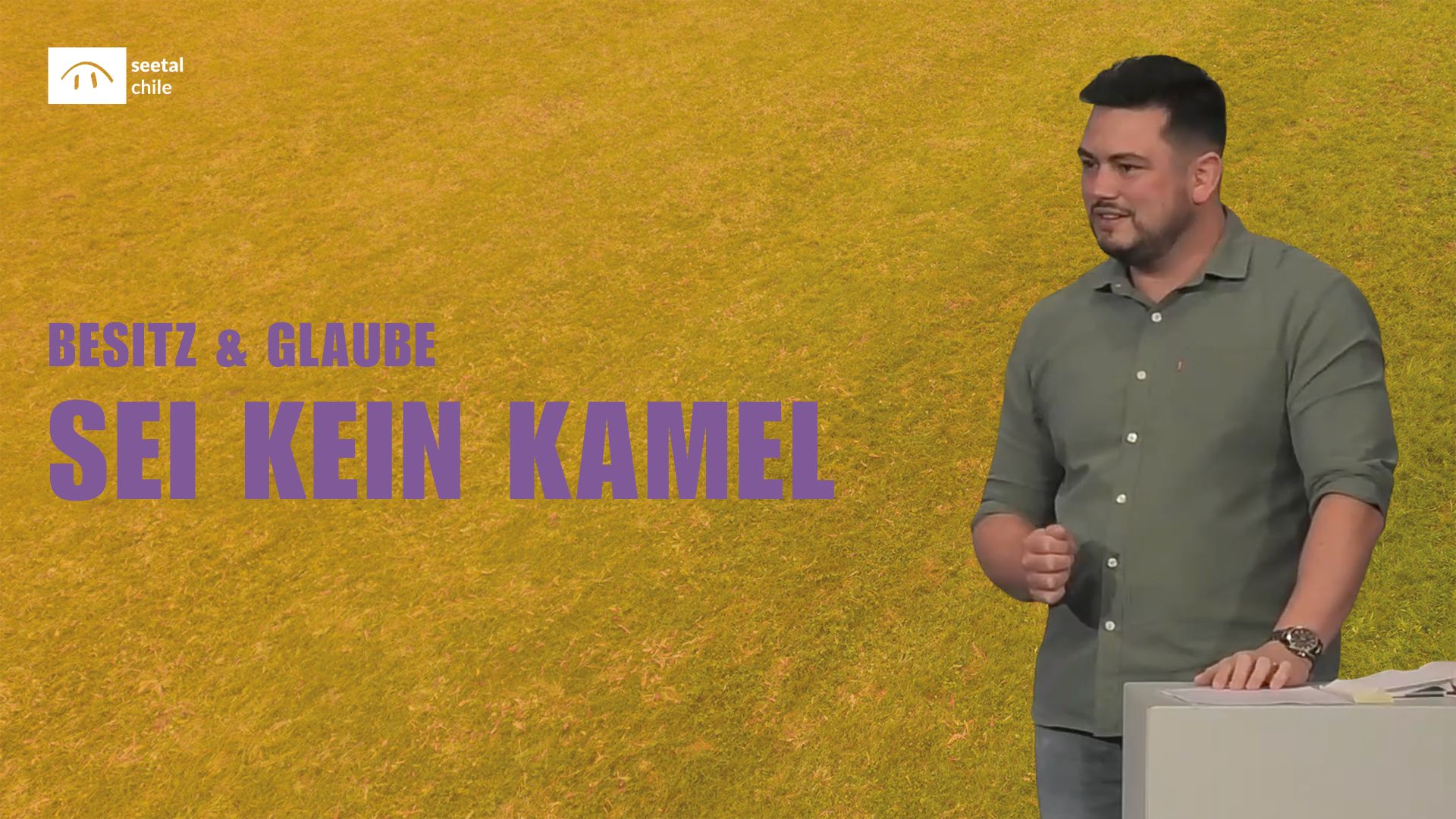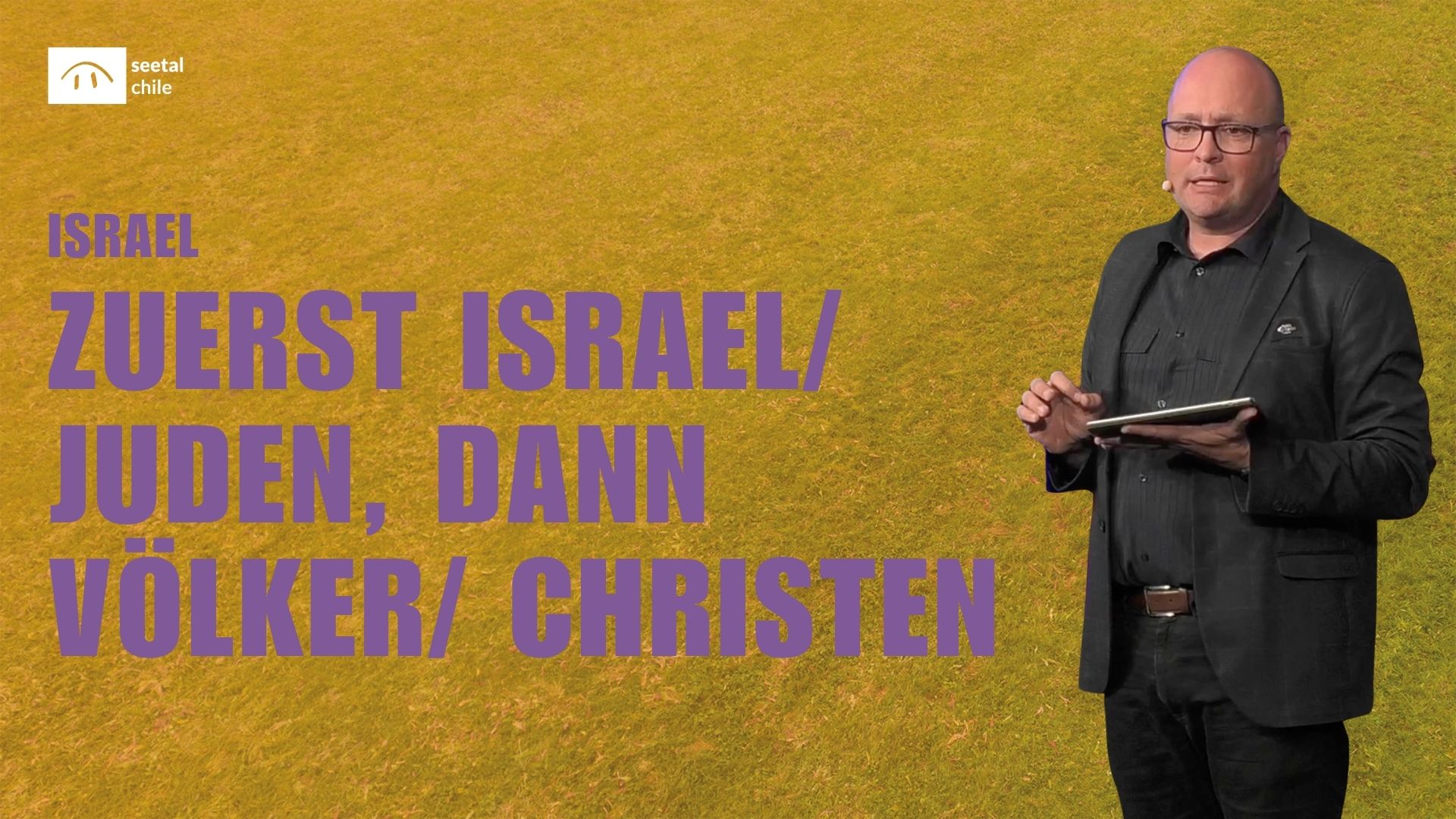Cain – consumed by envy
Series: Like you and me | Bible text: Genesis 4:1–15
Why is there so much injustice in this world? Or is God even unjust? Cain felt set back and unappreciated compared to his brother Abel. Deeply offended and consumed by envy, he gave free rein to violence and killed his brother. God had shown him a better way to deal with his negative feelings. Nevertheless, God gave Cain a second chance. He should live, a marked man, but live.
Have mercy on us, Lord. Why does a person get diagnosed with an incurable disease? Why does this traffic accident happen to her of all people? Why does this child have to grow up in such difficult family circumstances? Why does this stroke of fate happen to this person of all people, who is already on the dark side of life? Life is unfair. Maybe we even have to say: God is unjust!? It makes things easy for some and unspeakably difficult for others.
God is unjust
The story of Cain and Abel is about such questions. It’s about you and me. The stuff of life, so to speak. «Adam slept with his wife Eve and she became pregnant. And she gave birth to Cain (= gain, acquisition) and said: «With the help of the Lord I have given birth to a man». Later she gave birth to a second son and named him Abel (= corruption, nothingness). Abel became a shepherd, Cain a farmer. After some time, Cain sacrificed part of his harvest to the Lord. And Abel also offered him of the firstborn lambs from his flock and of their fat. The Lord looked favourably on Abel and accepted his sacrifice, but rejected Cain and his sacrifice» (Genesis 4:1–5a NL).
A bad experience, to put it very simply. Two people do the same thing: one arrives and gets noticed, the other is overlooked, fails and doesn’t know why. Both want the same thing, namely to say thank you to God through the offering and to make him happy. In doing so, they hope that he will in turn be kind to them again. That is the cycle of blessing. And now it is not Cain who interrupts it, but God. He accepts Abel’s gift and does not even look at Cain’s. We do not know what this gift is. We don’t know what this being seen or not seen was reflected in, whether they saw it, heard it – perhaps they only felt it. Perhaps Cain also notices it in his whole existence: in the fact that the arduous work in the field remained unsuccessful this year. It is barely enough for a living, while Abel’s flock threw particularly well this year. A frightening feeling creeps over Cain: My life is failing and Abel is shining with joy. It is incomprehensible and almost unbearable. Why does God make it easy for some and unspeakably difficult for others?
Comparing is a nasty thing. Either a depressing feeling creeps over us because the other person earns more, has the more harmonious marriage, can show off the successful children, owns the bigger house, etc., or we feel elevated because we are not as bad as the other person after all.
How do I deal with these differences and the injustice of life? In a parable, Jesus speaks openly of the fact that not everyone receives the same number of talents from God: someone received five, another two and the next only one (Matthew 25:14ff). It is the same in life. The conditions are different. What can a child do to grow up in an intact family while his schoolmate had different foster parents? Why is it that one Christian is healed because of prayer, while another dies prematurely or lives in great pain? Why does one always find a good job immediately, while the other gets rejection after rejection?
Cain is envious
Our narrative describes Cain’s reaction with a deep psychological view. In a literal translation it says: «And Cain was very hot with anger, and his face fell down»(v.5b). He doesn’t do that, it assaults and overwhelms him. Psychosomatic. It takes hold of the body via the soul. Soon envy burns and makes the body hot, highly charged and wants to discharge itself. It wants to restore justice by force. His deep depression makes his face depressed. This is an expression for loss of love: with the downcast face, contact with fellow human beings is broken off. A good relationship needs a raised face, so that you can look each other in the eye.
With Cain it took its course unchecked: «Later Cain suggested to his brother Abel: «Come, let’s go out into the field». When they were there, Cain fell upon his brother and struck him dead»(V.8 NL). The most important commandment is to love God with all your heart and your neighbour as yourself. Adam and Eve violated the love of God, Cain was the first to violate the love of neighbour. This is a causal chain: those who do not love God will soon fail in loving their neighbour. Before we point the finger at Cain, we must remember that he who commits murder already commits murder against another. raka says (Matthew 5:22). Raka is a common word of contempt, so in the currency of Fool.
The story could have taken a different course. How can we deal with our negative feelings like envy and anger? «Why are you so angry?» the Lord asked him. «Why do you look so grimly at the ground? Is it not so: If you have good in mind, you can look around freely. But when you plan evil, sin lies in wait for you. It wants to bring you down. But you shall reign over it!» «(V.6+7 NL). God sees Cain, even if it feels very different to Cain. Cain no longer sees anything else, only his degradation and insult. Everything else around him sinks into the secondary, so fixated is he on his terrible experience. He shuts himself off and hides himself away. Yet God has long since turned his gaze back to him and is looking at him. It can happen that the birds of envy fly over our heads, we can’t change that. But you can prevent them from building nests in your hair. To do this, we should lift our gaze and come to God or even to other people with our complaints. For those who accept God’s love can endure living in a divided world. If we remain alone with our bad feelings, we give them tremendous power.
The important message for Cain is: You shall rule over sin! No one is helplessly at the mercy of sin, even though it can be very persistent. The balance of power is clarified for us all the more. Paul says: «Our former life was crucified with Christ so that sin loses its power in our lives. Now we are no longer slaves to sin»(Romans 6:6 NL). That is exactly what we do in baptism! We no longer have to sin, but we still can. This is a good message for all of us – especially for people for whom certain habits have taken on an addictive character.
God is merciful
Cain did not lift his gaze, but continued on the chosen path of anger to the bitter end. He lures Abel to the field with a pretext and kills him there. Cain then pretends to know nothing about it: «And the LORD said unto Cain, Where is Abel thy brother? And he said: I know not; shall I be my brother’s keeper?»(v.9 Lut). Cain was the first to offer this world a memorable quote. God does not go into it at all. Cain knows very well that this is what he is supposed to be: His brother’s keeper and his own keeper. Once again it becomes clear that the ability to relate is massively disturbed.
Cain was not too proud to ask for mitigation of his punishment when he knew he had lost: «Cain replied to the Lord: My punishment is too severe, I cannot bear it»(V.13 NL). This is the first request for forgiveness in the Bible! God then makes him a sign to protect him and keep him alive. The sign of Cain. It is a sign that reminds us of the murder. But it is also a sign to live and to go on living. God gives Cain a second chance: you shall live, a marked man, but you shall live. It will not be the same life as it was before. You shall be unsteady and fleeting on earth – a life in the land of Nod, i.e. in the land of unrest, beyond Eden (v.16). In his love and mercy, God seeks to reach people who do not deserve it, whose nature is hardened and reluctant. God never gives up on anyone. And again it cries out in us: this is unjust! It cannot and must not be that such a person simply receives forgiveness.
This act is a reference to Jesus Christ, who paid for all the guilt of humanity many years later on the cross. In doing so, he laid the legal foundation for the forgiveness of all guilt and transgressions. All sin can be forgiven – all sin – provided the person accepts forgiveness. That is so really unfair! But let’s be honest; if it weren’t so, we would all be at the mercy. Thanks be to God, who gives us a second chance. Not as marked, but as perfected, we may later return to Eden, to the presence of God!
With Karl-Heinz Ronecker we could pray:
We are not Cain, Lord.
We did not slay our brother.
But our words are often as sharp as knives.
We are not Cain, Lord.
We have not thrown a stone against others.
But in our minds we have written them off and humiliated them with looks.
We are not Cain, Lord.
There is no blood on our hands.
But out of indifference and blindness we have abandoned them,
who needed our help.
Possible questions for the small groups
Read the Bible text: Genesis 4:1–15
- How do you deal with the fact that there is so much injustice in this world? Is God unjust?
- Why did Cain feel that God did not accept his sacrifice?
- Where do you see the connection between the sin of Adam and Eve and that of Cain? (Keyword: Most important commandment [Luke 10:27]).
- What kind of behaviour would be helpful in such a bad and depressive phase as Cain experienced?
- What has changed through Jesus in the topic of forgiveness?




